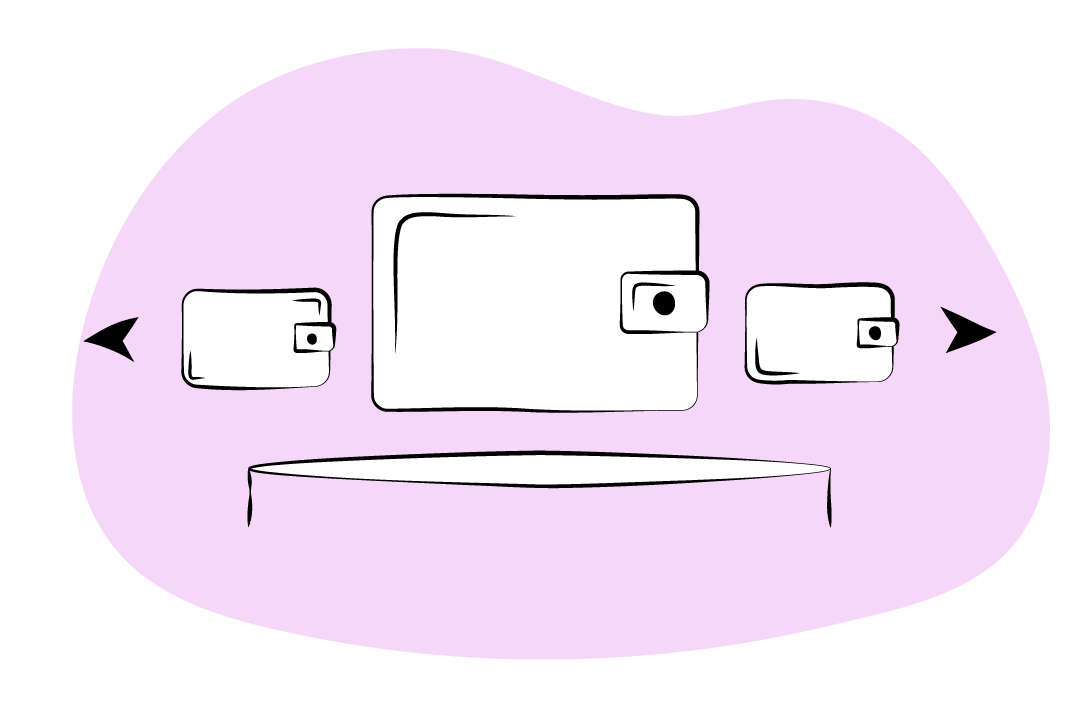Cryptocurrency Wallets: Safeguarding Your Digital Assets

Cryptocurrency wallets are essential tools for managing and safeguarding digital assets in the world of decentralized finance. As the popularity of cryptocurrencies continues to grow, the importance of understanding how to securely store and manage these assets becomes paramount. In this comprehensive exploration, we will delve into the intricacies of cryptocurrency wallets, examining their various types, features, and security measures to ensure the safekeeping of your digital wealth.
Understanding Cryptocurrency Wallets
Definition and Functionality
Cryptocurrency wallets are digital tools that allow users to store, send, and receive cryptocurrencies securely. These wallets interact with the blockchain network, enabling users to manage their digital assets and execute transactions. While the term wallet may evoke the image of a physical wallet used to store cash and cards, cryptocurrency wallets function differently, relying on cryptographic keys to access and control digital assets.
Types of Cryptocurrency Wallets
Software Wallets
Software wallets, also known as digital wallets, are applications or software programs that run on electronic devices such as computers, smartphones, or tablets. These wallets are accessible through web browsers or dedicated applications and offer convenient features for managing cryptocurrencies. Software wallets can be further categorized into:
- Desktop Wallets: Installed on desktop or laptop computers, desktop wallets provide users with full control over their private keys and offer a high level of security.
- Mobile Wallets: Designed for smartphones and tablets, mobile wallets offer mobility and convenience, allowing users to access their digital assets on the go.
- Web Wallets: Hosted on web-based platforms, web wallets offer accessibility and ease of use but may pose security risks due to reliance on third-party services.
Hardware Wallets
Hardware wallets are physical devices designed specifically for storing cryptocurrencies offline. These wallets provide an extra layer of security by isolating private keys from internet-connected devices, making them resistant to hacking and malware attacks. Hardware wallets typically come in the form of USB devices or smartcards and are considered one of the most secure options for storing large amounts of cryptocurrencies.
Paper Wallets
Paper wallets are physical documents or printouts that contain the public and private keys necessary for accessing and managing cryptocurrencies. These wallets are generated offline and are not stored digitally, making them immune to slot online threats such as hacking and phishing attacks. Paper wallets are often used as cold storage solutions for long-term asset preservation.
Features and Security Measures
Public Addresses
Public addresses, also known as public keys, are alphanumeric strings used to receive cryptocurrencies in a wallet. These addresses serve as identifiers for wallet owners and can be shared with others to receive payments or deposits. While public addresses are safe to share with others, private keys must be kept confidential to prevent unauthorized access to the associated funds.
Backup and Recovery
Backup and recovery features are essential for safeguarding cryptocurrencies in the event of device loss, damage, or malfunction. Cryptocurrency wallets often provide mechanisms for creating encrypted backups of private keys or mnemonic phrases, which can be used to restore access to digital assets in case of emergencies. It is essential to follow best practices for backup and recovery to prevent the loss of funds due to unforeseen circumstances.
Multi-Currency Support
Many cryptocurrency wallets offer support for multiple digital assets, allowing users to store and manage various cryptocurrencies within a single interface. This feature provides convenience and flexibility for users who hold diverse portfolios of digital assets. However, it is essential to verify compatibility and support for specific cryptocurrencies before choosing a wallet to ensure compatibility with your investment strategy.
Security Best Practices
Use Strong Passwords
Create strong, unique passwords for accessing cryptocurrency wallets and enable additional security features such as two-factor authentication (2FA) to enhance protection against unauthorized access.
Keep Software Updated
Regularly update wallet software and firmware to patch security vulnerabilities and ensure compatibility with the latest security protocols and standards.
Beware of Phishing Scams
Exercise caution when sharing sensitive information or interacting with suspicious links or emails that may be phishing attempts aimed at stealing private keys or personal data.
Store Offline When Not in Use
When not actively trading or transacting, consider storing cryptocurrencies offline in hardware or paper wallets to mitigate the risk of online threats such as hacking or malware attacks.
Diversify Storage Solutions
Diversify storage solutions by using a combination of hardware, software, and paper wallets to spread risk and enhance security against single points of failure.
Conclusion
In conclusion, cryptocurrency wallets play a critical role in safeguarding digital assets in the world of decentralized finance. Understanding the various types, features, and security measures of cryptocurrency wallets is essential for protecting your digital wealth from online threats and vulnerabilities. By employing best practices for wallet management, such as using strong passwords, keeping software updated, and diversifying storage solutions, you can enhance the security of your digital assets and mitigate the risk of unauthorized access or loss.
The post Cryptocurrency Wallets: Safeguarding Your Digital Assets appeared first on Coindoo.
Read more: https://coindoo.com/cryptocurrency-wallets-safeguarding-your-digital-assets/
Text source: Coindoo










